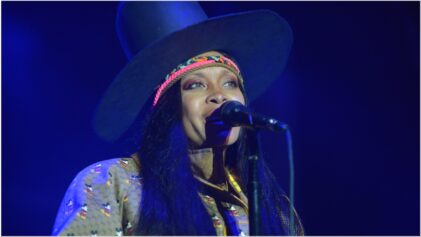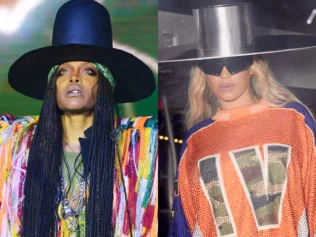Robert Glasper has been a rising star in the jazz world ever since he made his debut eight years ago. But despite the acclaim, in many ways, he felt like he was operating in a vacuum.
That’s because the pianist yearned for recognition outside the genre, which he says has done a poor job of attracting younger listeners like himself.
“Jazz is like a big secret club. The mainstream media doesn’t pay any attention to it, it’s like 1 percent of the music market – no one cares. Why? Because the majority of jazz is old,” Glasper said. “When I have to compete with John Coltrane and Miles Davis and Louie Armstrong on iTunes, which I’m doing now, that’s a problem. That means that jazz is not being heard by younger audiences.”
Glasper has helped change that with his release of “Black Radio,” which was a top seller on iTunes when it was released in February – a rarity for most jazz artists. It’s far from a traditional jazz record – it has R&B and hip-hop and a bit of rock, and has guests like Erykah Badu and Yasiin Bey (formerly Mos Def), whom he has performed with for some time.
Some purists have grumbled about Glasper’s genre-blending success, but the 34-year-old, who is performing this week at the Essence Music Festival in New Orleans, makes no apologies in an interview with The Associated Press.
AP: On your album, you complain that there’s no real music. What are you talking about – R&B, jazz?
Glasper: Your main radio stations, the stations that get the most listeners, don’t play anything that has any kind of integrity to it. They’re formatted to play the same five songs because they have to, because it’s about money, so you rarely hear like a really great Lalah Hathaway song. … Our young people aren’t getting fed real music … the format needs to change, because then you raise a whole different kind of person. Because radio sometimes raises your kid. … Media and the radio kind of raise your kids, so I think it can raise them in a better way if you hear some real music.
AP: Do you think your sales have made you more likely to be played on radio?
Glasper: I think so. I think they are a lot more open to it now, because it just took some people to believe, you know what I mean? And I think now that people see the success with something like that, a lot of radio programmers will take a leap of faith or something.
AP: What do you say to purists who may be disappointed or think you’ve sold out?
Glasper: I didn’t sell out. … I sold out the clubs (laughs). … I like other music, so don’t call it jazz if you don’t want to, but listen to it for what it is and then tell me if you like it or not.
AP: Do you think it’s jazz?
Glasper: Sure. I think it’s a lot of things. It doesn’t have to be one thing. If those jazz purists were talented enough to do a lot of different things, they probably would. … I happen to be blessed to be good in a lot of things, and I happen to be blessed to be thrusted into a lot of different avenues that a lot of people aren’t in. … Jazz purists just want what they want, they want you to stay in one thing because that’s what they love, they don’t want you to grow or change or do anything, and I can’t do that.
AP: Where do you see this success taking you?
Glasper: It would be stupid of me to all of the sudden get this kind of acclaim and get these kind of fans now and then turn around and do what I was doing first. … I don’t want to do that. Like, I did my straight-up jazz records, I did like three or four, so I see like a sequel to this. … I kind of want to keep this going, because I love this kind of music. … Most jazz-heads love it, and also non-jazz heads love it, so it’s a win-win either way.
Source: AP, Huffington Post
Video – Robert Glasper Experiment featuring Lupe Fiasco and Bilal on David Letterman


